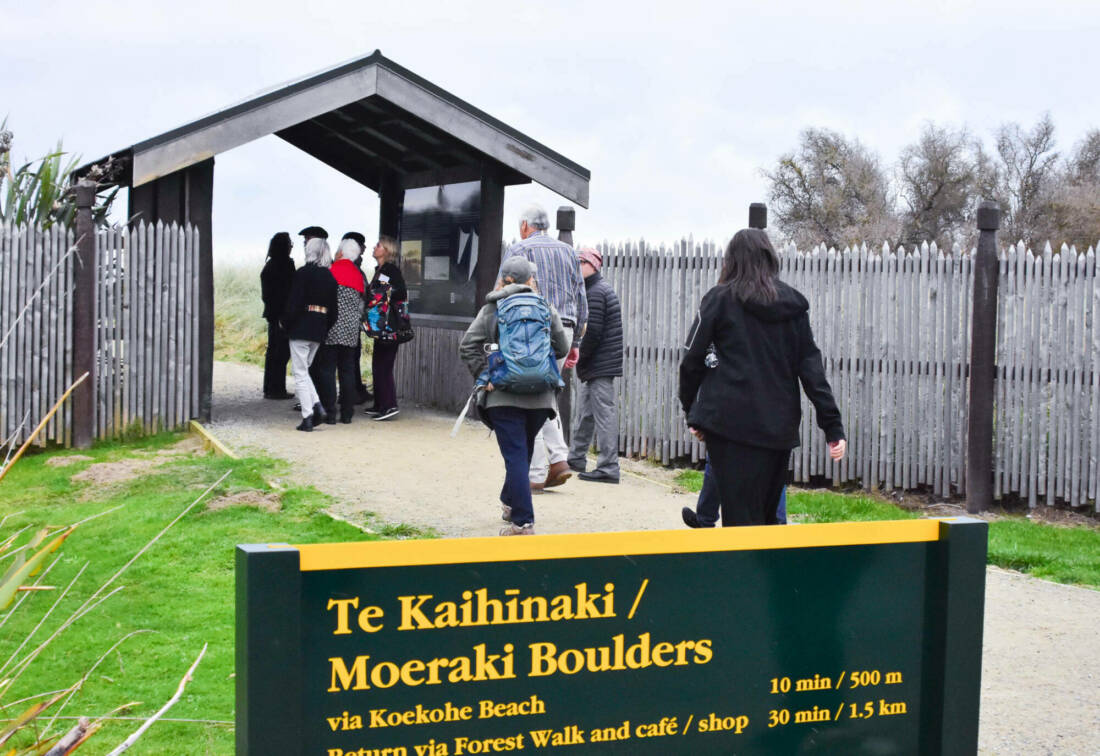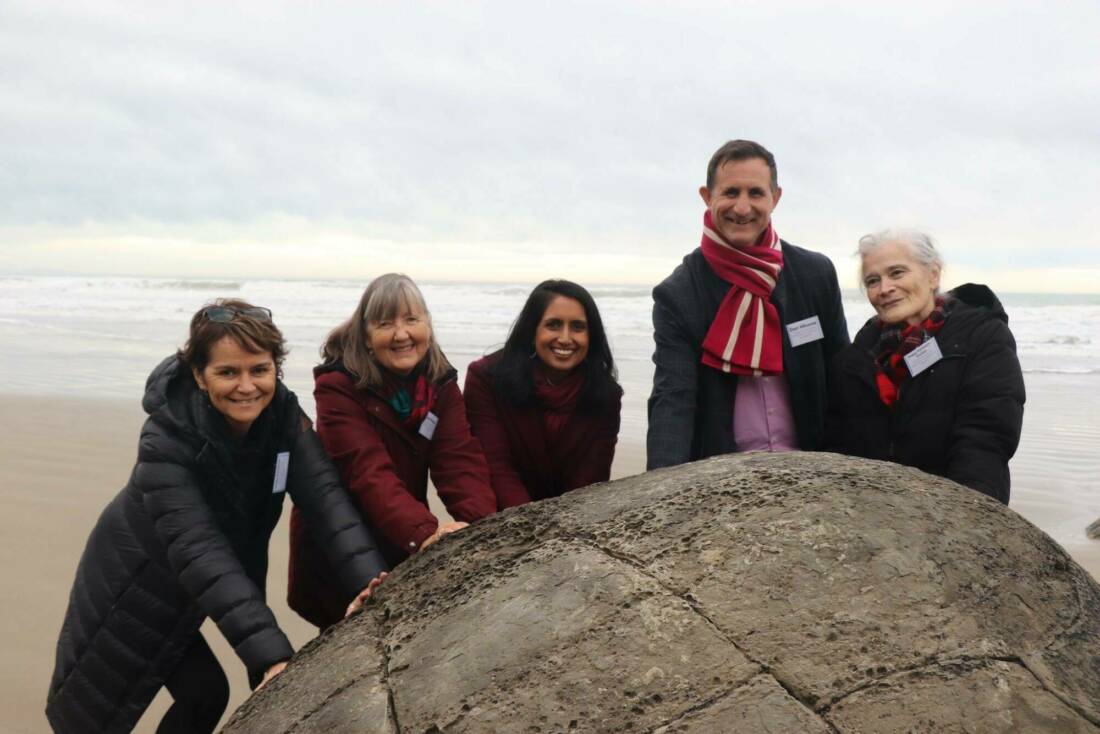UNESCO Global Geoparks Programme
Geoparks are geographical areas with geology of outstanding value. Geoparks are community owned and open to everyone. They take a community-led approach to protecting and promoting the very best of our geology.
What is the Global Geoparks Programme?
A UNESCO Global Geoparks Programme has been established in New Zealand.
UNESCO Global Geoparks are single, unified geographical areas where sites and landscapes of international geological significance are managed with a holistic concept of protection, education and sustainable development.

Aotearoa New Zealand’s first UNESCO Global Geopark.
In May 2023 Waitaki Whitestone Geopark was officially endorsed as Aotearoa New Zealand’s first UNESCO accredited Global Geopark.
The UNESCO Global Geopark designation recognises Waitaki Whitestone Geopark's outstanding geological and cultural heritage and its commitment to sustainable development, education, and community engagement.
Waitaki Whitestone’s journey towards becoming Aotearoa New Zealand’s first UNESCO Global Geopark began in 2018, shortly after the UNESCO Global Geopark programme was established in Aotearoa New Zealand. Learn more about Waitaki Whitestone’s UNESCO journey here: Our UNESCO Story | Waitaki Whitestone Geopark.
Located in Te Waipounamu, the South Island of New Zealand, the Waitaki Whitestone UNESCO Global Geopark covers an area of over 7,200 square kilometres and is renowned for its diverse and spectacular geological features, including limestone cliffs, glacial valleys, and ancient marine fossils.
Learn more about Waitaki Whitestone UNESCO Global Geopark here: Waitaki Whitestone Geopark | Aotearoa New Zealand.

How does a geopark operate?
Geoparks promote all aspects of their region’s natural and cultural heritage.
Activities that can be considered typical of a Geopark are mostly geotourism or educational based. These include:
- school programmes
- guided walks
- museum exhibitions
- geological heritage protection and promotional activities
- socio-economic activities to encourage sustainable regional development.
Former Natural Science Commissioner Geoff Hicks shares more information on Geoparks:
Why become a UNESCO Geopark?
UNESCO Global Geoparks offer opportunities to:
- raise awareness of the importance of the area’s geological heritage in history and society today
- give local people a sense of pride in their region and strengthen their identification with the area
- stimulate the creation of innovative local enterprises, new jobs and high quality training courses as new sources of revenue are generated through sustainable geotourism
- protect geological resources of the area.
Successful applicants will automatically become part of the Global Geoparks Network. Its objectives are to:
- promote the equitable geographical establishment, development and professional management of Global Geoparks
- advance knowledge and understanding of the nature, function and role of Global Geoparks assist local communities to value their natural and cultural heritage
- preserve Earth heritage for present and future generations
- educate and teach the broad public about issues in geo-sciences and their relation with environmental matters, climate change and natural hazards
- ensure sustainable socio-economic and cultural development on the natural (or geological) system
- foster multi-cultural links between heritage and conservation and the maintenance of geological and cultural diversity, using participatory schemes of partnership and management
- stimulate research when appropriate
- promote joint initiatives between Global Geoparks (e.g. communication, publications, exchange of information, twinning).
Members of the Network are entitled to use the registered ‘UNESCO Global Geopark’ brand as a mark of quality. Members benefit from the use of common promotional tools and have a forum for finding new partners for international cooperation, exchange of experience and for seeking funding.
Applying to become a UNESCO Geopark in Aotearoa New Zealand
Expressions of Interest for New Zealand sites are expected to open again in 2024.
In submitting an Expression of Interest applicants must answer questions about their proposed geopark site, backed up by evidence, examples and endorsements.
You will need to explain why your site is of national and international significance and offer current and proposed examples of community engagement and management.
If your Expression of Interest is successful, you will then be required to develop a full dossier.
The National Commission for UNESCO may nominate up to two New Zealand sites and landscapes per year.
If your proposed Global Geopark is recommended by the National Commission, your institution must cover the cost of travelling and accommodation for two experts from Europe who will undertake a field evaluation. Sites are re-evaluated every four years.
Successful applicants are required to join the Global Geoparks Network. The annual membership fee is approximately €1500, which includes an annual contribution to UNESCO.
The Global Geoparks Network General assembly meets every two years (parallel to the International Geoparks Conference) and participation by a representative from each geopark at all meetings is obligatory.
Still have questions? See UNESCO’s website for FAQs on the Global Geoparks programme or email us.
